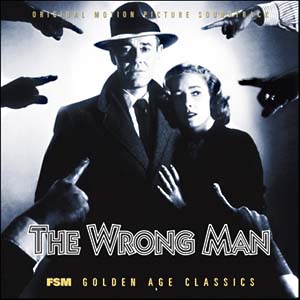
The 20th-Century notion of “absolute music” tended to
capture the imaginations of composers who wanted to be
thought “modern”. They generally abandoned the emotional, descriptive
and/or
narrative ambitions of 19th-Century program music in favor of a more
severe system of abstraction. This marked the end of concert music as
a popular art form but not the end of program music, which went on its
merry way in movies, where it continued to enthrall a large public.
Of course, people didn't pay as much conscious
attention to this music as they used to in the concert hall, but they
could have, with profit. To prove this assertion all you have to do is
listen to the many classic film scores now available on CD — the
original tracks recorded for the films or later re-recordings of the
scores. Many of them are magnificent pieces of music in their own
right. It helps to have the “program” in mind, a memory of the films
this music supported, but it's not absolutely necessary with the very
best scores — like those of Bernard Herrmann, for example.
Hermann didn't specialize in creating memorable
melodies but he was a master
at using the colors of an orchestra to evoke mood and he had a great
and subtle understanding of the dramatic uses of rhythm. All of his
Hitchcock scores are brilliant, even the less famous of them like the
score he did for The Wrong Man. Edgy, dark, minimalist, jazz-inflected, it
perfectly mirrors the bleak and jagged realism of Hitchcock's 50s-era
New York
City, its dehumanizing institutions and its spiritual
chaos. But it has a lyrical core,
too, that echoes the protagonist's yearning for deliverance.
It's not absolute music, to be sure — but it's
absolutely wonderful.
